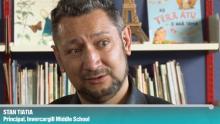Data and relationships
Data and information about teaching and learning is made highly visible and the interpretation and response are a collaborative process. Leaders and teachers reflect on the role of data in professional relationships and how an open approach builds capability and confidence to respond to the challenges that need to be addressed.







